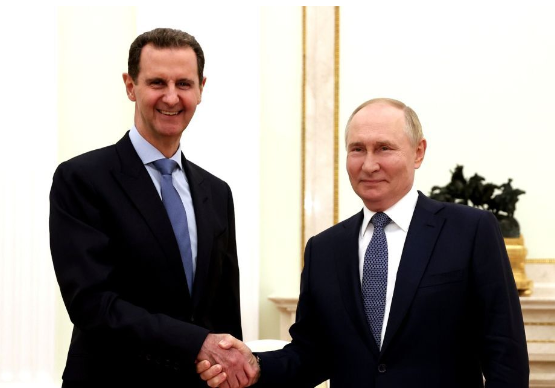Russian President Vladimir Putin recently met with Syrian President Bashar Al-Assad, as part of a Moscow-supported effort to restore relations between Damascus and neighboring Turkey, according to the Kremlin. In a video released on Thursday, Putin expressed his interest in Assad’s perspective on regional developments, noting a concerning trend of escalation in Syria.
Assad, who met with Putin on Wednesday evening, highlighted the significance of their discussions given current global and regional events. This meeting follows their last encounter in March 2023.
The potential normalization of Turkey-Syria relations would be a setback for the U.S. in the region. The effort is part of a broader strategy by Moscow and Beijing to challenge U.S. influence in the Middle East. The U.S. maintains about 900 troops in northeastern Syria to support Kurdish allies, a presence that both Moscow and Damascus have long opposed.
Assad’s reintegration into the Arab League in May last year marked a significant victory for a leader who has faced heavy U.S. and European sanctions for atrocities committed during Syria’s civil war.
Last month, Turkish President Recep Tayyip Erdogan indicated a willingness to restore diplomatic relations with Assad, a significant policy shift that could help resolve the prolonged conflict in Syria.
Erdogan remarked that restoring friendly ties with Assad is not “impossible.” The two leaders, who once had a close relationship, fell out early in the Syrian civil war that began in 2011 due to Turkey’s support for rebel groups opposing Assad.
Assad has previously stated his openness to restoring ties based on mutual respect for sovereignty.
Elena Suponina, a Middle East expert based in Moscow, suggested that an agreement could be reached as early as August, potentially announced at a three-way summit involving Putin, Assad, and Erdogan. One contentious issue, the demand from Damascus for a Turkish troop withdrawal from northern Syria, could be resolved through a phased approach, according to Suponina.
